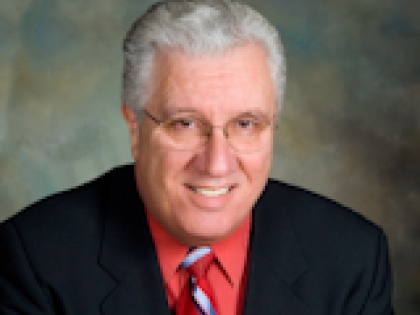
The Attorney General Needs To Tip The Scales Of Justice For New Yorkers By Senator Carl L. Marcellino

When I asked Broadwater Energy whether New York State has a say in the siting and operation of a liquefied natural gas importation facility in Long Island Sound, they told me no. When I asked the Federal Energy Regulatory Commission (FERC) representative the same question, the answer was, I don’t know; I am not an attorney. These are the unsettling answers I received as Chair of the Senate Committee on Environmental Conservation during a public hearing I held with Assemblyman Thomas DiNapoli, Chair of the Assembly Committee on Environmental Conservation, and the Senate and Assembly Committees on Energy, regarding the Broadwater proposal.
In fact, despite what was said at the hearing, according to a declaratory order that FERC issued in March of 2004, they are the sole regulatory authority for the siting and construction of liquefied natural gas import terminals in the United States. The people of California challenged FERC in court because they felt it was wrong to have their voices stifled by faceless Washington bureaucrats who are not accountable to the people living next to these facilities, and I agree.
In an effort to squelch other states from exerting their rights over their waters, some Congressmen put language into the 2005 Federal budget which clarified FERC’s jurisdiction on the siting of new liquefied natural gas facilities. When it was implied that this action did not have the full effect of the law, a bill was introduced which would ban any state from requiring permits or other forms of authorization with respect to siting or operation of liquefied natural gas import terminals. This bill is troubling because energy companies are proposing to build at least 24 liquefied natural gas marine terminal facilities affecting at least 14 States.
On February 17th, I formally asked the New York State Attorney General to issue a decision on what New York State’s rights are concerning the siting and operation of a liquefied natural gas facility. The issue is not whether we need more energy on Long Island or even if this is a realistic or responsible plan. It is a more fundamental and, ultimately, more important question -- will New York State have to sit idly by while Washington, D.C. bureaucrats and corporate lawyers make decisions with blatant disregard for the wishes and needs of the State that is directly affected by their actions.
We have all read stories and seen news reports detailing the Broadwater Energy proposal that would place an eleven story high and four "football fields" long liquefied natural gas facility in the middle of Long Island Sound. We have all heard the local officials and environmental advocates clamoring for this proposal to be dropped immediately. What no one really knows is - will the voices that raise the objections be heard? Has anyone investigated what New York State’s rights are in this case?
The time is now to ensure that our rights are heard and we are part of the decision making process of the siting of liquefied natural gas facilities. Unless actions are taken immediately, our State’s rights will slowly be strangled by the Federal bureaucracy that appears to only answer to energy companies.
The Attorney General must investigate our options under current law. We need to know if the State Legislature should take action, or if it must be our Federal representatives. Or is our only option a lawsuit to ensure New Yorkers’ voices are heard?
Today, we are concerned about Broadwater Energy. However, it is only a matter of time until other multinational corporations decide to do something similar. For instance, could the same laws extend to the siting of nuclear power plants off Long Island Sound? New Yorkers must be the ones to decide how our natural resources are protected and how we fulfill our own energy needs.
As Patrick Henry said, "The liberties of the people never were, nor ever will be, secure when the transactions of their rulers may be concealed from them." New York State cannot protect our quality of life while bureaucrats at FERC are attacking our State sovereignty and the very Constitution itself.



